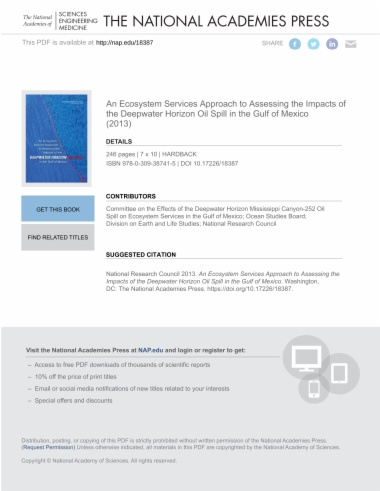

As the Gulf of Mexico recovers from the Deepwater Horizon oil spill, natural resource managers face the challenge of understanding the impacts of the spill and setting priorities for restoration work. The full value of losses resulting from the spill cannot be captured, however, without consideration of changes in ecosystem services—the benefits delivered to society through natural processes.
An Ecosystem Services Approach to Assessing the Impacts of the Deepwater Horizon Oil Spill in the Gulf of Mexico discusses the benefits and challenges associated with using an ecosystem services approach to damage assessment, describing potential impacts of response technologies, exploring the role of resilience, and offering suggestions for areas of future research. This report illustrates how this approach might be applied to coastal wetlands, fisheries, marine mammals, and the deep sea—each of which provide key ecosystem services in the Gulf—and identifies substantial differences among these case studies. The report also discusses the suite of technologies used in the spill response, including burning, skimming, and chemical dispersants, and their possible long-term impacts on ecosystem services.